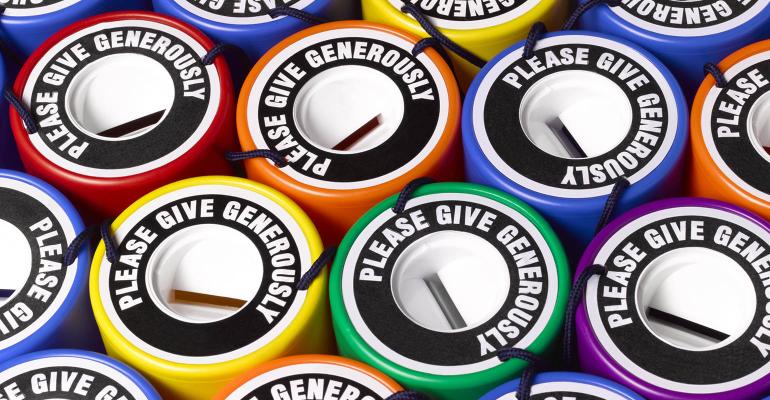Charitable giving by the affluent is up above pre-pandemic levels. Although not as high as the record levels reached during 2020 in direct response to the urgency and needs created by the pandemic, the average amount donated to charity in 2022 went up by 19% from pre-pandemic levels, according to the 2023 Bank of America Study of Philanthropy. The study also reveals that as the average amount given to charity by the wealthy continues to go up over time, the percentage of donor households continues to decline, meaning charities are relying on a smaller sector of high-net-worth donors.
Despite setbacks faced in light of recent economic and societal challenges—including inflation not seen since the 1980s, the first meaningful rise in interest rates after nearly 15 years at nearly 0% and last year’s invasion of Ukraine by Russia—the wealthy continue to give generously, with 85% of affluent households making charitable contributions in 2022.
The majority of affluent individuals focused their giving on local causes, which is reflected by the fact that 39% and 24%, respectively, of total giving went to religious organizations and causes and higher education. Giving to basic needs organizations rounded out the top three at 10%. According to the study, one potential reason why religious organizations continue to receive the largest share of giving dollars is because affluent individuals “report a higher degree of confidence in religious organizations’ abilities to solve societal or global problems, now and in the future, compared to the government and business sectors.”
Also noteworthy, the study highlights a potential change in the tide of where the future of philanthropy is headed. As the great wealth transfer continues, the next generation stands to become an influential group when it comes to charitable giving. Millennials and Gen Z differ significantly in what issues/causes they prioritize compared to their older counterparts. Per the study, the younger generation is “two-and-a-half times more likely than older donors to cite climate change as one of the top three causes or issues that are most important to them.” They also differ in what information they rely on when deciding whether to give to an organization – young donors are more likely to rely on information they get from the internet or media (31%) than from direct engagement with nonprofits (20%).
Women are also becoming a force for change when it comes to charitable giving. Significantly more affluent women volunteered than affluent men (though women remain underrepresented on non-profit boards), and 85% of household charitable giving decisions are made or influenced by a woman. Women donors are more inclined to support women’s and girls’ causes, such as reproductive health/rights, and are significantly more interested in supporting racial equality and justice efforts. Women are also significantly more likely to say they actively engage relatives of other generations in their giving.
More importantly, women are thoughtful donors, with 44% of women reporting having a strategy for their giving and 43% having a budget for their giving. They’re also more likely to monitor or evaluate the impact of their giving compared to men.
One of the presenters at the media briefing for the 2023 study, Liz Elting, founder and CEO of the Elizabeth Elting Foundation, was an excellent example of this last point, as she underscored the importance of focusing her charitable giving on causes near and dear to her heart, including education, health care and funding entrepreneurs from underrepresented communities.
Opportunity for Professionals
For professionals working with charitably inclined clients, a major takeaway is that donors’ personal values and beliefs continue to lead their decisions when choosing organizations and causes to support, however, 36% of affluent households report trouble pinpointing what they care about. Furthermore, 54% of affluent households with a net worth between $5 million and $20 million have or plan to establish a giving vehicle within the next three years, leaving a door of opportunity for advisors and planners to help these individuals navigate an increasing complex charitable landscape.

